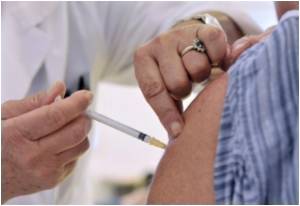Scientists at Queen Mary, University of London, say that cervical cancer screening intervals could be extended to five years for women aged 30 and over if the primary screening

The study, led by David Mesher, from the Cancer Research UK Centre for Epidemiology, Mathematics and Statistics at Queen Mary, University of London, recruited more than 11,000 women from 161 family practices around the UK.
Two samples were taken from each of the women; one using the conventional cytology screening method and the other was sent for HPV testing.
The researchers found that women with HPV negative results had a lower rate of developing pre-cancerous cells for at least six years compared with women who recorded a negative cytology result.
The research has been published in the British Journal of Cancer.
Source-ANI
TAN













